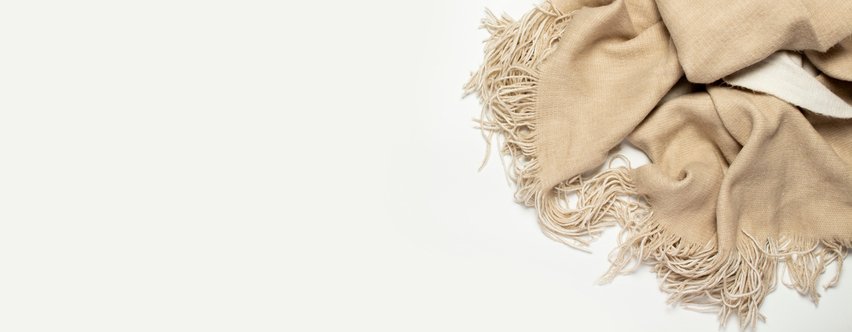My Husband Wants Me Wear a Headscarf at Home: Is There Any Religious Proof for This?
Hanafi Fiqh
Answered by Ustadha Sulma Badrudduja
Question: My husband feels it is a higher/advanced level of adab to also wear a head covering at home. As he has taqwa, he feels doing so is more modest and brings greater blessings into the home. He suggests (never enforces) that I should wear head covering even in seclusion with no visitors or non-mahrams. I have no objections to doing this if evidence or proof of this is presented as I wish to obey my husband. Could you please clarify if covering at home is more inline with the principle of ‘haya? If not, will I be sinning if I refuse? My husband is from Pakistan and I am concerned that this is actually a cultural practice and that there is no recommendation/benefit from my doing so.
Answer: Wa alaikum assalam wa rahmatullahi wa barakatuh,
Thank you for your question. I hope you are doing well inshaAllah.
The Obligation
The obligation regarding dress for women, generally speaking, is that they cover their bodies in front of marriageable (non-mahram) men according to the well-known guidelines of hijab. But there are details for what constitutes the woman’s `awra (nakedness) in different situations. In front of marriageable men, it is everything except her hands, face, and feet. There are other rulings for when in front of marriageable men, non-Muslim women, or in seclusion. As for strictly between spouses, it is permissible for each of them to see any part of the others body.
What Modesty Entails and Prophet Guidance Regarding Modesty
This is in terms of obligation and minimum requirements. However, modesty dictates that one dresses in a way that is honorable and represents the values of Islam. Wearing scanty or revealing dress for no purpose while with members of the household has never been part of the Islamic etiquette and the way of the righteous, even in situations where it would be “legally permissible.”
The precious words of the Prophet Muhammad (may Allah bless him and grant him peace) describe to us the centrality of modesty (haya’) in our religion:
681. Ibn ‘Umar reported that the Messenger of Allah, may Allah bless him and grant him peace, passed by one of the men of the Ansar who was admonishing his brother for being too modest. The Messenger of Allah, may Allah bless him and grant him peace, said, “Let him be. Modesty is part of belief.” [Agreed upon]
682. ‘Imran ibn Husayn reported that the Messenger of Allah, may Allah bless him and grant him peace, said, “Modesty only brings good.” [Agreed upon]
In a variant of Muslim, “Modesty is all good.”
[Imam al-Nawawi, Riyad al-Salihin]
Summary
Legally speaking, covering your hair and body completely when with your husband or in seclusion is neither obligatory nor specifically called upon. However, it would be praiseworthy if you were to do this as an expression of modesty and other Islamic values such as dignity and virtue or decency (`iffa). In your particular situation, it would also be praiseworthy because it would please your husband. Any action that one spouse does for the other in order to bring happiness to him/her and to bring harmony to their relationship is immensely rewarded. It is rewarded on the level of entering happiness into the heart of the believer, on the level of maintaining harmonious family and kinship ties, on the level of establishing a healthy household environment in which Allah can be worshiped, and, if it involves difficulty, on the level of selflessness.
Regarding your concern about cultural practices — if it could be argued that covering oneself more than what is specifically called upon is a cultural practice, it is one that conforms to the values of Islam. It would therefore in no way be something that one needs to avoid, given that one recognizes its appropriate place in the religion.
And Allah knows best.
Wassalam,
Sulma
Checked & Approved by Faraz Rabbani
